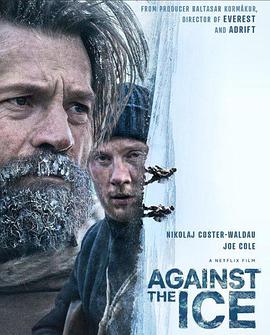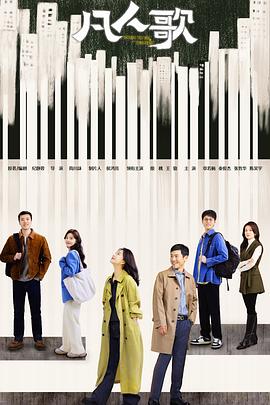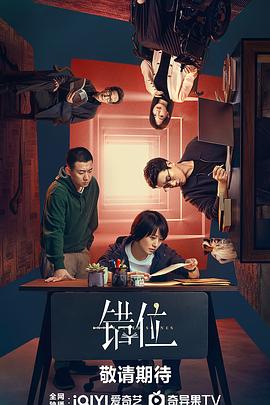- 正在播放《欧洲的某个地方》HD中字 - ok播放器
- 提醒不要轻易相信视频中的任何广告,谨防上当受骗
- 技巧如遇视频无法播放或加载速度慢,可尝试切换播放节点或者切换解析
- 收藏070影视 (070tv.com)-免费在线影视大全-追剧网站网址:www.070tv.com / www.070tv.com ,记得收藏哟~
剧情:
Somewhere in the remote region, the war ends. In the midst of ruined cities and houses in the streets, in rural hamlets, everywhere where people still live, are children who have lost their homes and parents. Abandoned, hungry, and in rags, defenseless and humiliated, they wander through the world. Hunger drives them. Little streams of orphans merge into a river which rushes forward and submerges everything in its path. The children do not know any feeling; they know only the world of their enemies. They fight, steal, struggle for a mouthful of food, and violence is merely a means to get it. A gang led by Cahoun finds a refuge in an abandoned castle and encounters an old composer who has voluntarily retired into solitude from a world of hatred, treason, and crime. How can they find a common ground, how can they become mutual friends The castle becomes their hiding place but possibly it will also be their first home which they may organize and must defend. But even for this, the price will be very high. To this simple story, the journalist, writer, poet, scriptwriter, movie director, and film theoretician Béla Balázs applied many years of experience. He and the director Géza Radványi created a work which opened a new postwar chapter in Hungarian film. Surprisingly, this film has not lost any of its impact over the years, especially on a profound philosophical level. That is to say, it is not merely a movie about war; it is not important in what location and in what period of time it takes place. It is a story outside of time about the joyless fate of children who pay dearly for the cruel war games of adults. At the time it was premiered, the movie was enthusiastically received by the critics. The main roles were taken by streetwise boys of a children's group who created their roles improvisationally in close contact with a few professional actors, and in the children's acting their own fresh experience of war's turmoil appears to be reflected. At the same time, their performance fits admirably into the mosaic of a very complex movie language. Balázs's influence revealed itself, above all, in the introductory sequences an air raid on an amusement park, seen in a montage of dramatic situations evoking the last spasms of war, where, undoubtedly, we discern the influence of classical Soviet cinematography. Shooting, the boy's escape, the locomotive's wheels, the shadows of soldiers with submachine guns, the sound of a whistle—the images are linked together in abrupt sequences in which varying shots and expressive sharp sounds are emphasized. A perfectly planned screenplay avoided all elements of sentimentality, time-worn stereotypes of wronged children, romanticism and cheap simplification. The authors succeeded in bridging the perilous dramatic abyss of the metamorphosis of a children's community. Their telling of the story (the scene of pillaging, the assault on the castle, etc) independently introduced some neorealist elements which, at that time, were being propagated in Italy by De Sica, Rossellini, and other film artists. The rebukes of contemporary critics, who called attention to formalism for its own sake have been forgotten. The masterly art of cameraman Barnabás Hegyi gives vitality to the poetic images. His angle shots of the children, his composition of scenes in the castle interior, are a living document of the times, and underline the atmosphere and the characters of the protagonists. The success of the picture was also enhanced by the musical art of composer Dénes Buday who, in tense situations, inserted the theme of the Marseilaise into the movie's structure, as a motive of community unification, as an expression of friendship and the possibility of understanding. Valahol Europaban is the first significant postwar Hungarian film. It originated in a relaxed atmosphere, replete with joy and euphoria, and it includes these elements in order to demonstrate the strength of humanism, tolerance, and friendship. It represents a general condemnation of war anywhere in the world, in any form.
收起
【HD中字】
官网同步更新,若有延迟请稍作休息再看看
官网同步更新,若有延迟请稍作休息再看看
【HD中字】
官网同步更新,若有延迟请稍作休息再看看
官网同步更新,若有延迟请稍作休息再看看
【HD中字】
官网同步更新,若有延迟请稍作休息再看看
官网同步更新,若有延迟请稍作休息再看看
相关影片
2024
剧情片
日本
正片
2023
剧情片
马其顿,克罗地亚,科索沃,法国,卢森堡
The world outside the forest has been ravaged by a deadly virus. Young Marko is faced with losing ev
HD
2023
剧情片
法国
瓦莱丽·勒梅西埃 费尼肯·欧菲尔德 艾尔莎·盖迪 奥利维耶·克拉弗里 Eli Letourneur Fehdi Bendjima Mahamat Amine Benrachid 贾尼斯·布兹亚尼 Gulliver Bevernaege-Benhadj Jade Dubois Sarah B. Henriques Martin Daquin Victor Mermaz Lucas Faulong Roxane Bret Kévin Kaupert Gérard Gaudron 法比安·加卢拉 弗朗索瓦·佩彻
有一個協會專門收容一些因性取向( 統稱LGBT)而被家人遺棄而無家可歸的年輕人。這些表面看似嬉鬧,決意要捍衞自我權益的誇張行為背後所隱藏的都是一些破碎的生命。這些年輕人都有着強烈的生存意慾,渴望在社會
HD
2024
剧情片
美国
正片
2024
剧情片
瑞典
HD
2019
剧情片
法国
正片
第8集
2024
剧情片
中国大陆
正片
2024
剧情片
美国
詹妮弗·洛佩兹 鲍比·坎纳瓦尔 肖恩·海托西 迈克尔·佩纳 唐·钱德尔 麦凯尔泰·威廉逊 贾雷尔·杰罗姆 朱莉安娜·甘米兹 梅丽莎·迪亚兹 Alex Barone Tiffany Cornwell 卡洛斯·索洛萨诺 Chrissy Bergeron Mateo Ray Garcia 帕克·萨克 Noen Perez 奇梅奇·奥帕拉诺齐 Timothy Hornor Levee Duplay 本杰明·贝奈特
杰森·霍尔([美国狙击手])将自编自导聚焦摔跤明星Anthony Robles的新片[势不可挡](Unstoppable,暂译)。本片改编自Robles的回忆录,约翰·辛德曼撰写了剧本的最新稿。R
HD
2025
剧情片
日本
HD
2024
剧情片
英国
HD
2023
剧情片
美国
HD
2024
剧情片
中国台湾
HD
正在热播
更多
2024
综艺
中国大陆
独家推荐
先导片
2024
日韩动漫
日本
第1集
2024
国产剧
中国大陆
独家推荐
更新至04集
2024
国产剧
中国大陆,新加坡
独家推荐
更新至第06集
2024
国产剧
中国大陆
独家推荐
更新至第06集
2024
国产剧
中国大陆
更新第04集
2024
大陆综艺
大陆
更新至第20240702期
2024
国产剧
中国大陆
更新至03集
2024
喜剧片
中国大陆
正片
2024
日韩动漫
日本
全8集
2024
国产剧
中国大陆
全40集+番外





























